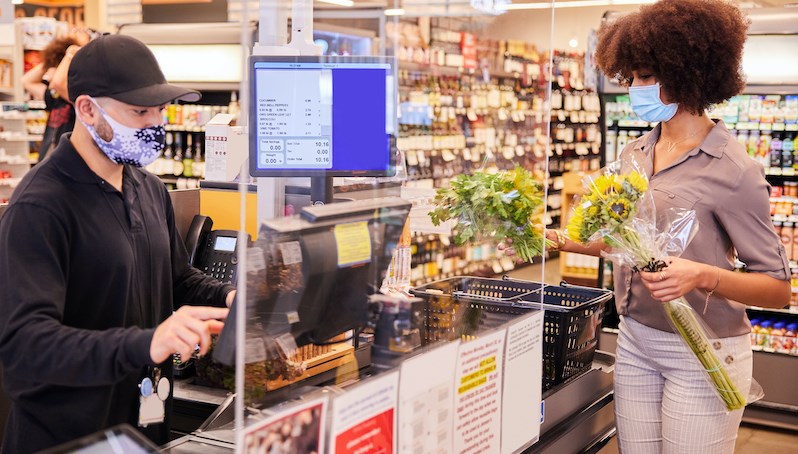B.C.’s Human Rights Tribunal says it will hear the case of a woman who alleges Vancouver Coastal Health Authority (VCH) discriminated against her in refusing accommodation over her fears of contracting COVID-19 at work.
Enid Symonds was employed as a VCH regional office receptionist since 2004, a June 28 decision said.
Symonds said she has multiple physical disabilities that put her at increased risk of an adverse outcome related to COVID-19. As such, she claims, at the pandemic’s outset, she expressed concerns to VCH, her supervisor and her union about the safety of her working environment.
She said she expressed fear of increased risk and sought workplace accommodation. She claims there was no meaningful engagement on her concerns and went on medical leave in April 2020.
Symonds alleges VCH’s conduct amounts to a breach of the Human Rights Code in the area of employment on the ground of physical disability.
Symonds said she suggested in February 2020 that Plexiglas could be placed around her workstation. She was reportedly told the level of public interaction was low, as was the risk of COVID-19, and she could wash her hands more often.
Tribunal member Emily Ohler noted such as response was in agreement with the joint statement of B.C.’s Minister of Health Adrian Dix and Provincial Health Officer Dr. Bonnie Henry dated Feb. 24, 2020.
Symonds said the number of calls she was handling increased significantly in March 2020.
“She had been instructed to refer such questions to the British Columbia Centre for Disease Control,” Ohler said. “She says that she felt increasingly overwhelmed by the number of concerned callers when she was already working in an environment in which she felt unsafe.”
The provincial government declared the pandemic a public health emergency on March 17, 2020. Symonds said new protocols were put in place at her station.
A week later, Symonds saw her doctor. They recommended she go on a medical leave because of the stress being caused by the situation, which was elevating her blood pressure. Symonds gave her employer a medical note that day saying she would be off work for two weeks.
She used up vacation days, paid sick leave days, and unpaid sick leave days during her absence, the decision said, after which her union requested she be able to work from home.
The employer said that would not be possible as Symonds was needed to allow delivery people into the workplace.
She returned to work April 7 and wore a mask but remained anxious about infection, the decision said. A week later, she applied for and was accepted for long-term disability benefits under her collective agreement.
A month after she left, Symonds learned Plexiglas had been installed around her workstation.
VCH argued the comment about hand washing was consistent with prevailing public policy and that her onsite presence was a job requirement.
Ohler said VCH didn’t provide sufficient information supporting its contention that it would constitute an undue hardship to allow Symonds to work from home or that it discharged its duty to explore alternative possible accommodation.
“It is particularly striking to me that VCH indeed did eventually install Plexiglas in the reception area after she went on leave without ever communicating this to her in an effort to return her to work,” Ohler said.


